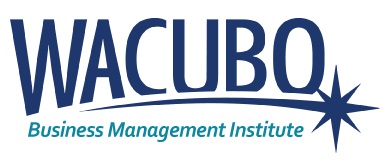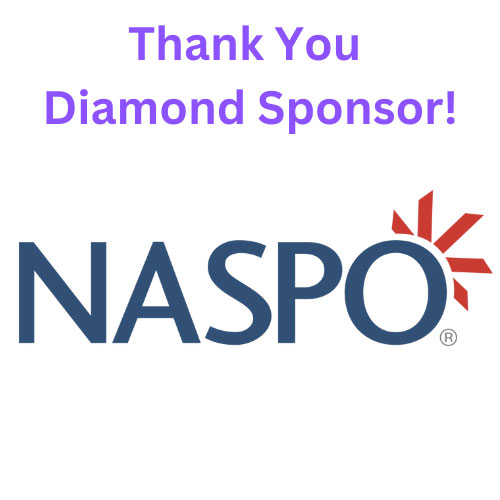Business Management Institute - Track 4
Earn up to 19.5 CPE Credits
Join us July 31–August 4, 2022
University of California, Santa Barbara

Work-Life Integration Strategies
2 CPE Credits |
August 1, 2022
10:15 AM–12:00 PM |
Field of Study: Personnel & Human Resources
|
Program Level: Overview |
| Presenter: Jeffrey West, Salt Lake Community College (ret.) and Diane Fennig, Ph.D., Leadership Advisor, Gallagher Executive Search |
|
Course Description
One of the positive results of the global pandemic includes a deeper look of how we want to spend our time on earth. The relationship between work and life is a constant ebb and flow of time, attention, and energy, and there are tools to help establish and nurture harmony between them. In this interactive session, you will explore the myth of "work-life balance," and be introduced to an integrated perspective and pragmatic approach to addressing often competing responsibilities. You will discover support, tools, and strategies, that encourage the necessary mind shifts and ultimate transitions to the new, more effective, and less stressful integrated world of work-life. Be prepared to leave with new tools and actions you can implement right away as you strategize to navigate your work-life integration going forward.
|
|
Learning Objectives
By the end of this workshop participants will:
- Review work-life integration strategies, reimagined for today’s world of work
- Identify work-life integration barriers and those you want to change now
- Experience practices and tools to enhance work-life harmony
- Deep dive into self-care, resilience, boundaries, gratitude, and the importance of meaning in work
- Create a practical action plan to optimize your functioning both professionally and personally, maximizing your work-life integration strategies
|
Lead with Your Strengths
2 CPE Credits |
August 1, 2022
1:30 PM–3:15 PM |
Field of Study: Personal Development
|
Program Level: Overview |
| Presenter: Katy Rees, Co-Founder, The Culture People and California State University, San Marcos (ret.); Jennifer Williams, Co-Founder, The Culture People California State University, San Marcos (ret.) |
|
Course Description
The CliftonStrengths assessment is a powerful tool for unlocking potential and facilitating personal and professional growth. During this session, participants will explore how their unique themes contribute to their ability to lead projects, tasks, and people forward. The course will build upon the three prior years of strengths curriculum, as participants will explore their greatest domain of strength, how to lead with strengths and get the best of themselves and others, as well as identify tools for managing perceptions that may impact their ability to achieve success. Join us to learn how to lead with your talents and leverage as strengths.
|
|
Learning Objectives
By the end of this workshop participants will:
- Review of terminology and concepts from Years One, Two, and Three.
- Learn how to further apply, leverage, and partner themes to showcase your best self and encourage others to be at their best.
- Uncover tips for leading with strengths and managing weaknesses.
- Enhance understanding of the domains of strength and helping/hindering themes.
- Explore theme perceptions, vulnerabilities, and opportunities in order to positively contribute to your team(s) and lead more effectively.
|
Voices, Values & Velocity: The Rules of Employee Engagement
1.5 CPE Credits |
August 2, 2022
8:30 AM–10:00 AM |
Field of Study: Personnel & Human Resources
|
Program Level: Overview |
| Presenter: Allison Vaillancourt, Ph.D., Vice President, Segal and University of Arizona (ret.) |
|
Course Description
Strategic employers have recognized the urgent need to attend to growing employee expectations for values, voice and velocity. Employees want work aligned with their personal values, a say in organizational decision-making, and a hassle-free experience that lets them get things done quickly while getting regular promotions." While "The Great Resignation" may not continue for much longer, this session will address what it takes to be a destination of choice for the very best employees regardless of labor market conditions.
|
|
Learning Objectives
By the end of this workshop participants will:
- Identify changing aspects of the employee value proposition
- Evaluate participant institution’s current employment approach against innovative strategies being employed at innovative organizations
- Design strategies to make participants’ organizations more competitive in both attracting and retaining quality talent
|
Strategy Planning #1 – How to Do It Right
2 CPE Credits |
August 2, 2022
10:15 AM–12:00 PM |
Field of Study: Business Management & Organization
|
Program Level: Intermediate |
| Presenter: Paul Friga, Ph.D. , Professor, University of North Carolina, Chapel Hill and Senior Advisor, Association of Governing Boards |
|
Course Description
Strategy is one of the most critical elements of any organization. The goal of strategic planning is to create a strategy that successfully links resource allocations to support the intended strategic direction of the organization and achieve stated objectives. The opening session for this intensive study of Strategy in Times of Crisis will cover the key components of strategic planning and best practices for how to do it well.
|
|
Learning Objectives
By the end of this workshop participants will:
- Learn the content and process of good strategic planning
- Observe best practice examples of strategy and tips for success
- Share first-hand experiences of strategy in your organization
|
Strategy Planning #2 Scenario Planning -One of the Most Important Tools for Strategy
2 CPE Credits |
August 2, 2022
1:30 PM–3:15 PM |
Field of Study: Business Management & Organization
|
Program Level: Intermediate |
| Presenter: Paul Friga, Ph.D. , Professor, University of North Carolina, Chapel Hill and Senior Advisor, Association of Governing Boards |
|
Course Description
Scenario Planning is one of the most important tools in strategy. It allows for formal articulation of an understanding of base line assumptions for the future but also different potential paths based upon a dynamic environment. The key is to develop strategic initiatives under the different scenarios so that appropriate shifts in actions can take place quickly when needed.
|
|
Learning Objectives
By the end of this workshop participants will:
- Understand the purpose and steps of Scenario Planning
- Interpret examples of Scenario Planning in private industry as well as higher education
- Share personal and institutional planning experiences, especially given COVID-19
|
Strategy Planning #3 Strategic Resource Allocation-Budgets, Priorities, Initiatives & Metrics
1.5 CPE Credits |
August 3, 2022
8:30 AM–10:00 AM |
Field of Study: Business Management & Organization
|
Program Level: Intermediate |
| Presenter: Paul Friga, Ph.D. , Professor, University of North Carolina, Chapel Hill and Senior Advisor, Association of Governing Boards |
|
Course Description
The key to successful execution of a nicely formulated strategy is resource allocation. In this segment, we will walk through the importance of tying two types of important resources, people and money, to strategic priorities of the institution. We will also cover the importance of budgeting and evaluating performance with clear metrics of success.
|
|
Learning Objectives
By the end of this workshop participants will:
- Realize the importance of resource allocation to strategy
- Identify different tools of resource allocation in an organization – especially the creation of supporting initiatives and appropriate budgets
- See examples of fully vetted strategic plans that are aligned to priorities
|
Strategy Planning #4 Macro Trends in Higher Education
2 CPE Credits |
August 3, 2022
10:15 AM–12:00 PM |
Field of Study: Business Management & Organization
|
Program Level: Intermediate |
| Presenter: Paul Friga, Ph.D. , Professor, University of North Carolina, Chapel Hill and Senior Advisor, Association of Governing Boards |
|
Course Description
Strategy occurs are multiple levels in an organization. In this module, we will explore the different levels – enterprise, unit and function – and explain the critical need for alignment in action and communication. The concepts of the balanced scorecard and strategy maps are presented and examples are shared.
|
|
Learning Objectives
By the end of this workshop participants will:
- Understand the different levels of strategy in an organization
- Set goals for alignment in terms of content, actions, and metrics
- Gain exposure to tools for this process and examples in higher education and beyond
|
ELECTIVE 2: Next Level Leadership…Communicating with Emotional Intelligence
1.5 CPE Credits
|
August 3, 2022
1:45 PM–3:15 PM |
Field of Study: Personal Development
|
Program Level: Overview |
| Presenter: Sue Anderson, MS, SPHR, University of San Diego, (ret.) |
|
Course Description
What makes a leader stand out among their peers? Decades of research would suggest the ability to demonstrate emotional intelligence (EI). This course will provide an overview of key EI concepts with a focus on their application to communication. Through interactive activities you will learn simple, emotionally intelligent communication strategies to practice in your next conversation!
|
|
Learning Objectives
By the end of this workshop participants will:
- Identify the four domains of Emotional Intelligence (EI).
- Explore how each domain impacts communication.
- Practice identifying emotions in others.
- Practice using emotionally intelligent phrasing.
- Identify emotionally intelligent communication strategies for immediate application.
|
ELECTIVE 3: Current Hot Topics in Risk Management
1.5 CPE Credits
|
August 3, 2022
1:45 PM–3:15 PM |
Field of Study: Management Services
|
Program Level: Update |
| Presenter: Miguel Delgado, Chief Risk Officer, University of Arizona |
|
Course Description
Risk Management in higher education is always evolving as new risks come on to the horizon and begin to impact our organizations. As new risks arise, and known risks are better understood, best practices for managing those risks are continuously fine‐tuned by experience. This session will dive into some detail about some of the more challenging risk issues impacting colleges and universities today. Institutional response to the COVID-19 pandemic is impacting every organization, and there are multiple safety and risk issues involved in those responses. Other hot topic risks include ransomware and cyber security, fraud prevention, international travel, and protecting minors. Attendees will be encouraged to bring forward risk topics from their own experiences at their institution through an open forum for discussion.
|
|
Learning Objectives
By the end of this workshop participants will:
- Develop an understanding of some of the more complex risk issues in higher education, and the strategies for managing those risks.
- Review and understand the unique risk factors raised by the COVID-19 pandemic, and how institutions are changing for the future.
- Review risk exposures posed by ransomware and lapses in cyber security.
- Understand the risks faced during international travel by faculty and students.
- Review the risk exposure associated with programs serving minors, and best practices for risk mitigation and youth protection.
|
ELECTIVE 4: Difficult Decisions: Problem Solving in Challenging Times
1.5 CPE Credits
|
August 3, 2022
1:45 PM–3:15 PM |
Field of Study: Business Management & Organization
|
Program Level: Overview |
| Presenter: Jairy Hunter, Jr., Ph.D., President Emeritus, Southern Charleston University |
|
Course Description
Every organization experiences two basic types of problems: people problems and institutional problems. Administrators and supervisors are faced with an ever-increasing abundance of adversity, miscommunication, change, low morale and diminishing resources. Professionals must be good problem solvers. Albert Einstein said, “You can never solve a problem on the level on which it was created.” The best problem solvers have patience, step back to see the big picture, and consider everyone’s opinion before determining the best strategy to implement. Problems and conflicts must be dealt with in a timely manner to prevent problems from escalating throughout the organization.
This course will equip higher education professionals with the skills to identify, analyze and develop strategies for implementation to resolve problems and conflicts.
|
|
Learning Objectives
By the end of this workshop participants will:
- Strategically prioritize problems
- Gather pertinent facts
- Avoid the landmines
- Obtain objective input
- Employ the 5 steps of the problem-solving process
|
ELECTIVE 5: Strategy & Planning in Today’s Environment
1.5 CPE Credits
|
August 3, 2022
1:45 PM–3:15 PM |
Field of Study: Business Management & Organization
|
Program Level: Overview |
| Presenter: Ruth A. Johnston, Ph.D., System Vice Chancellor and Chief Operating Officer, New Mexico State University |
|
Course Description
The session on strategic planning and implementation in today’s environment will cover the components of strategic planning, variations on how it is done, illustrate examples, discuss tools for implementation and engage in group discussion and exercises. Participants will be encouraged to share their experiences with planning, at the unit, organizational and institutional levels.
|
|
Learning Objectives
By the end of this workshop participants will:
- Understand the concepts of strategic planning in today’s environment
- Understand the leader’s role in strategic planning
- Learn variations on planning
- Learn tools that can be used for implementation and tracking
|
ELECTIVE 6: Strategic Budgeting
1.5 CPE Credits
|
August 3, 2022
1:45 PM–3:15 PM |
Field of Study: Finance
|
Program Level: Overview |
| Presenter:
Joyce Lopes, Vice President Business & Financial Affairs, Western Washington University
|
|
Course Description
The strategic plan articulates an institution’s top priorities. However, university budgets tend to be incremental and allocated according to the organizational chart rather than by university priority. This results in a tendency to maintain status quo operations rather than provide opportunities for investment in strategic priorities. When building a budget, identifying institutional assets should be central to the process. Fiscal decisions should align with the institution’s mission and long-term goals, investing first in strategic priorities through a transparent, intentional process. Such a method of allocating resources helps guarantee the long-term capacity and health of the institution. This course will explore the ways to align budget with strategic priorities in a meaningful and on-going way. Participants are encouraged to print their institutions strategic plan/priorities (electronically or printed) to refer to throughout the session.
|
|
Learning Objectives
By the end of this workshop participants will:
- Align our budget with our strategic priorities to improve student learning and success
- Invest in our institutional assets to ensure we are using resources efficiently and effectively
- Implement evidence-based budgeting linked to assessment, as required by WASC
|
ELECTIVE 7: Communicating with Difficult People and Influencing Chance
1.5 CPE Credits
|
August 3, 2022
1:45 PM–3:15 PM |
Field of Study: Personnel & Human Resources
|
Program Level: Overview |
| Presenter: Barbara Ginsberg, Partner at Atkinson, Andelson, Loya Rudd & Roma |
|
Course Description
As supervisors, we often encounter individuals we find to be very difficult to communicate with due to their abrasiveness, unwillingness to listen, or negative attitudes. Or sometimes we find ourselves in positions where we have to communicate negative information to people, such as a substandard performance evaluation or a disciplinary document. Learn tips for improving your essential communication skills; learn how to identify the “filters” that interfere with effective communication; and most importantly, learn how to best use communication as a tool to influence changes in difficult people.
|
|
Learning Objectives
By the end of this workshop participants will:
- Build participant confidence by providing concrete steps and suggestions for identifying issues and motives, and engaging in face-to-face communication with difficult people
- Empower participants to control situations with difficult people with tact and skill by providing steps and considerations for preparing for and engaging in face-to-face communications with challenging individuals, including steps for the setting, use of key communication skills such as listening, summarizing for understanding, communications filters and body language.
- Tips and techniques for influencing positive changes in difficult people as well as suggestions for follow-up and prevention/minimization of future communication problems.
|
|
Strategy Planning #5 – Leading Change Management
1.5 CPE Credits
|
August 4, 2022
8:30 AM–10:00 AM |
Field of Study: Business Management & Organization
|
Program Level: Intermediate |
| Presenter: Ruth A. Johnston, Ph.D., System Vice Chancellor and Chief Operating Officer, New Mexico State University |
|
Course Description
This session will engage the participants in the topic of how to lead and manage change, especially the impact on people and on you as the leader.
|
|
Learning Objectives
By the end of this workshop participants will:
- Understand the change cycle and what happens in it
- Understand conditions and success factors of leading effective change
- Learn coaching skills during change
|
Cultural Sensitivity in the Workplace
1.5 CPE Credits
|
August 4, 2022
10:15 AM–11:45 AM |
Field of Study: Personnel/Human Resources
|
Program Level: XXX |
| Presenter: Ashlee Reece, Attorney, Atkinson, Andelson, Loya, Ruud & Roma |
|
Course Description
Understanding people of different backgrounds and cultures is increasingly important in today’s multicultural work environment. Cultural sensitivity training can help educational institutions increase cultural competency and prevent conflicts that can lead to incidents of discrimination, harassment and retaliation. Administrators will learn what it means to have cultural sensitivity and how to implement culturally sensitive behavior.
|
|
Learning Objectives
By the end of this workshop participants will:
- Learn appropriate times, methods and circumstances for training
- Learn to monitor and avoid forms of discrimination
- Discover how to ways to have conversations improve sensitive situations
|
|




